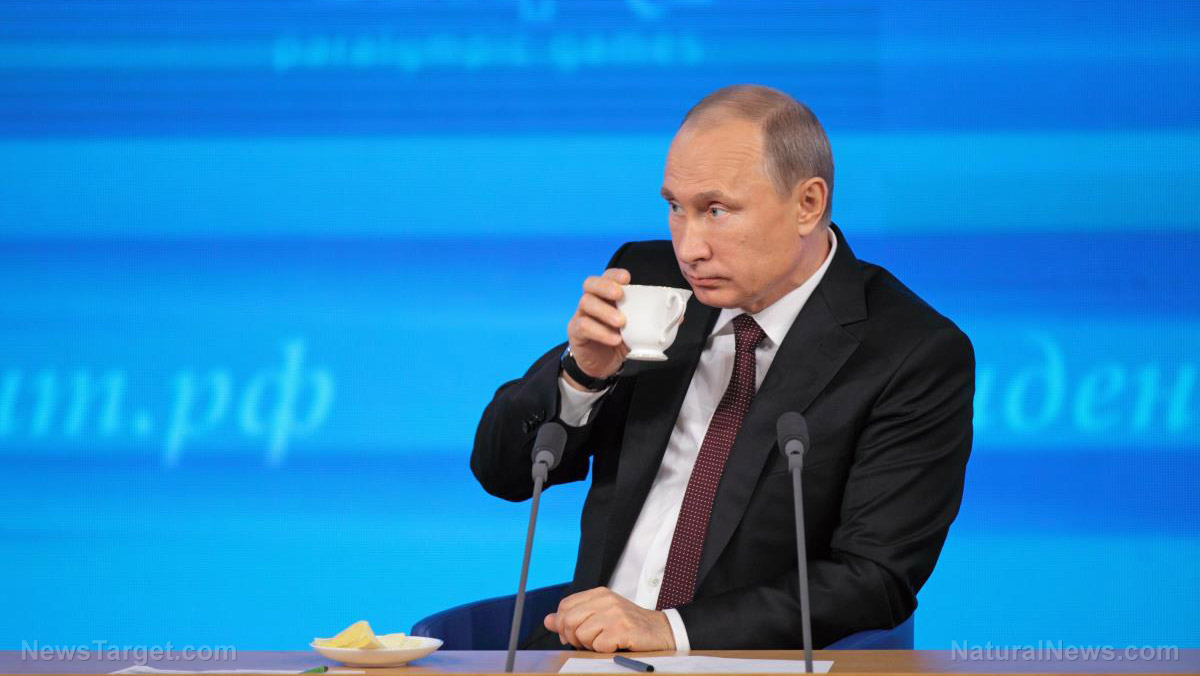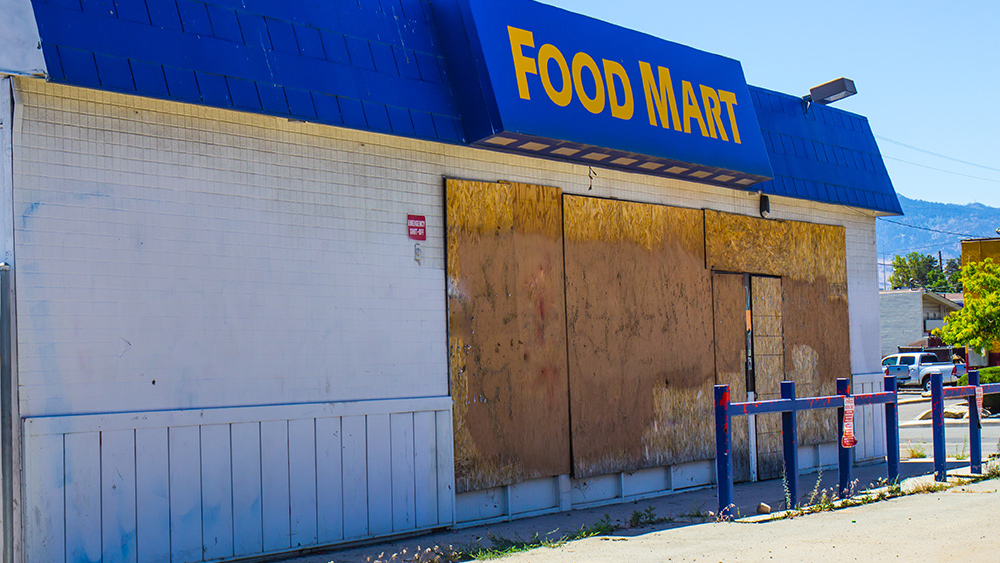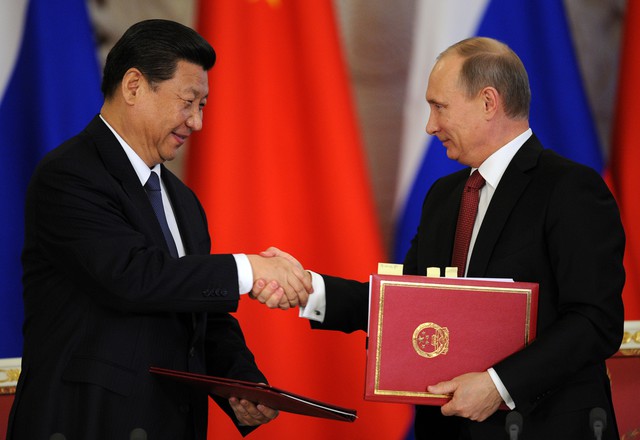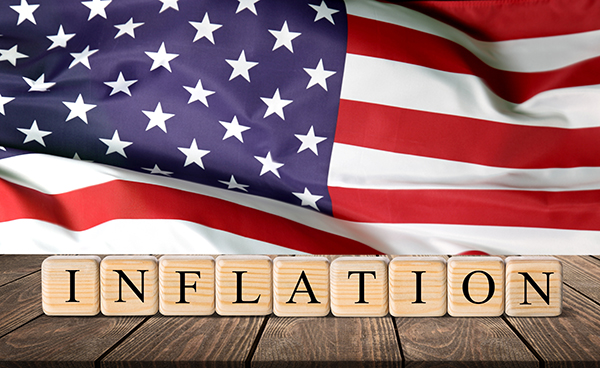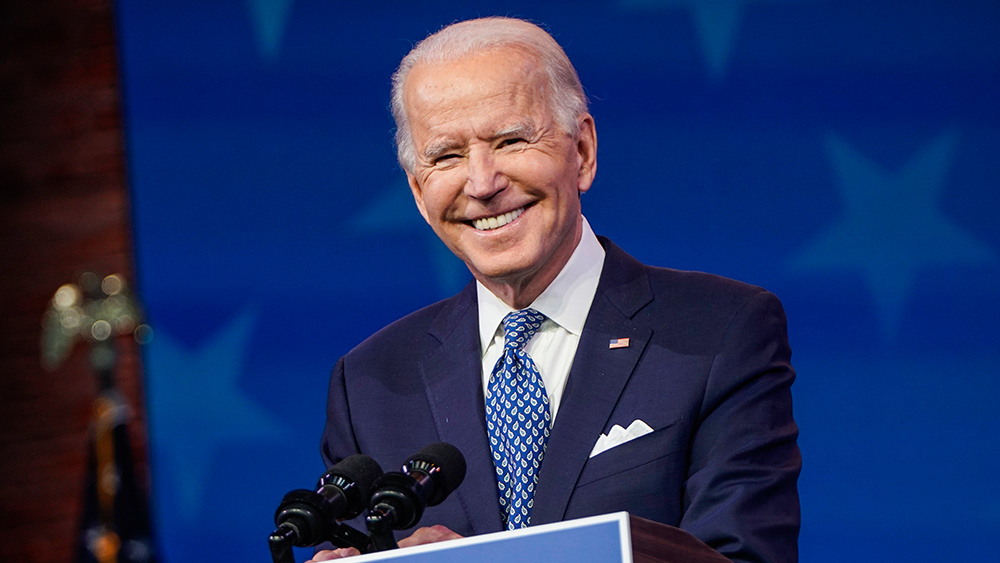FRBM President Neel Kashkari: Surge in immigration contributes to persistently high inflation, interest rates
06/05/2024 / By Ava Grace

The president of the Federal Reserve Bank of Minneapolis (FRBM) attributes sustained high inflation and interest rates to the recent surge in immigration.
FRBM President Neel Kashkari made this observation during an interview with the Telegraph, asserting that these high inflation and interest rates are likely to remain high for an extended period. He expressed concern over the challenges in controlling inflation amid increasing housing demand.
Kashkari emphasized that he is not yet ready to consider cutting interest rates until there are “several months of real progress on inflation.” He pointed to the influx of immigrants as a significant factor preventing such progress, noting its impact on the housing market. The FRBM president explained: “[If the] dramatic increase in immigration were to be sustained, I think it would have a meaningful imprint on the economy.”
He also mentioned that the rise in housing demand is exacerbated by more people working from home and a decade of under-building, creating a perfect storm that keeps the housing market robust despite high interest rates.
The Biden administration has claimed that increased immigration helps control inflation by depressing wages. However, Kashkari’s comments contradict this view, suggesting instead that immigration is driving up housing demand, thereby contributing to inflation. (Related: Trudeau plans to continue immigration policies despite admitting they have caused decline in wages, housing crisis in Canada.)
“Housing is traditionally the most interest-rate sensitive sector of the economy. And it has shown remarkable resilience and even some evidence that new leases are ticking back up,” Kashkari said. He explained that the resilience of the housing market is concerning because new leases take a year or more to impact measured inflation. This delay means that rising leases could sustain inflationary pressures longer than expected.
Since July 2023, the U.S. Federal Reserve (USFR) has kept interest rates between 5.25 percent and 5.5 percent. Initially, USFR officials and financial markets anticipated several rate cuts this year. However, a surge in inflation to a 3.4 percent annualized rate in the first quarter of the year has led to a reevaluation of these plans. USFR Chairman Jerome Powell recently noted that achieving the two percent inflation target “will take longer than previously expected.”
Inflation could remain stubbornly high
USFR officials said during their March policymaking meeting that inflation will likely continue to slow down this year, according to minutes released, but some still fretted over the possibility that inflation could remain stubbornly high.
Those fears have now worsened, at least on Wall Street, which means that interest rates could remain higher for longer if prices don’t budge.
While Fed officials “observed that significant progress had been made over the past year” despite disappointing inflation readings for January and February, some also “noted that the recent increases in inflation had been relatively broad based,” the minutes said.
Kashkari indicated that rate cuts are unlikely soon and did not rule out the possibility of further rate increases, although he sees it as an unlikely scenario. “I think the balance of risks suggests it will likely be down but we shouldn’t rule anything out at this point. I think a more likely scenario is that we sit where we are for an extended period of time,” he said.
He also noted that services inflation had been “much stickier” recently, complicating the justification for rate cuts. Kashkari mentioned that while there was significant disinflationary progress in the latter half of last year, inflation has plateaued in the first quarter of this year.
“I want to see evidence that inflation is headed well back down toward the two percent target. I’m not saying that we have to get all the way back down to 2 percent before we start cutting, but I need to be convinced that that’s where we’re headed before I would be comfortable normalizing interest rates.”
Kashkari’s remarks underscore the complexities the Federal Reserve faces in balancing economic growth and inflation control, with immigration being a notable factor in this challenging equation.
Check out EconomicRiot.com for similar stories.
Watch this clip from “Varney & Co.” on Fox Business about the U.S. experiencing unprecedented inflation.
This video is from the NewsClips channel on Brighteon.com.
More related stories:
US home foreclosures SURGE as inflation continues to soar and incomes decline.
Sources include:
Submit a correction >>
Tagged Under:
collapse, economic riot, economics, economy, Federal Reserve Bank of Minneapolis, finance, finance riot, homeless agenda, housing bomb, Illegal aliens, illegal immigrants, illegal immigration, immigration, immigration surge, inflation, inflation rate, interest rate, migrants, Neel Kashkari, Open Borders
This article may contain statements that reflect the opinion of the author
RECENT NEWS & ARTICLES
COPYRIGHT © 2022 EconomicRiot.com
All content posted on this site is protected under Free Speech. EconomicRiot.com is not responsible for content written by contributing authors. The information on this site is provided for educational and entertainment purposes only. It is not intended as a substitute for professional advice of any kind. EconomicRiot.com assumes no responsibility for the use or misuse of this material. All trademarks, registered trademarks and service marks mentioned on this site are the property of their respective owners.

